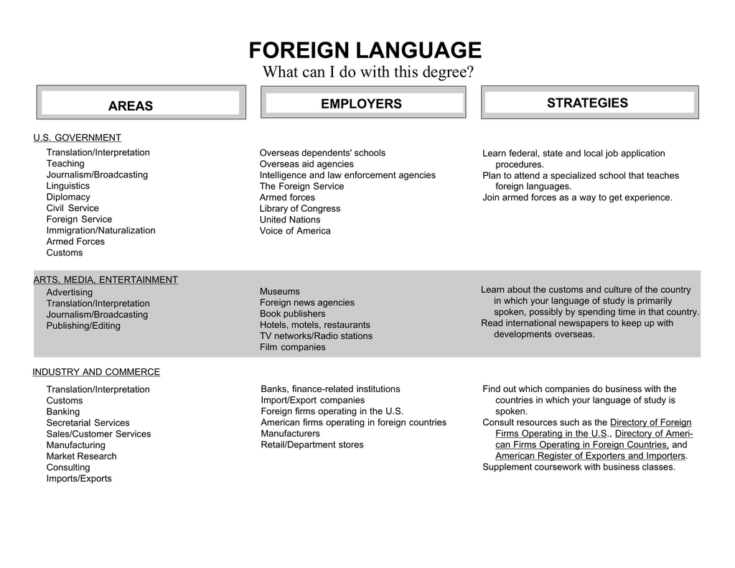Studying a modern language at university can open the door to a range of careers, with language skills becoming an increasingly valuable asset for employers in an international professional world.
By the end of your four-year course – which usually includes a full year abroad in a country where the language you’re studying is spoken – you’ll have attained fluency in a foreign language and a range of marketable skills.
What are the typical careers for a languages graduate?
Some of the more traditional routes for language graduates can include careers in translation, interpreting, or teaching. Over the course of your degree, you’ll have fine-tuned your spoken, written and comprehension abilities in your chosen language(s), paving the way to multi-lingual vocations and even opportunities abroad.
What other positions can a language degree lead to?
Beyond these specialist roles, the degree can also lead to positions in business and finance-related industries, as well as marketing and consultancy. The communication and written skills you learn over the course of a modern languages degree are also useful if you’d like to go into media as a career.
The number of students enrolling on language degrees decreased more than any other subject between 2017/18 and 2018/19 despite a growing need for language graduates, indicating that there will be no shortage of opportunities for those who do take it as university level.
Does a language degree help to become a solicitor?
Doing a degree in languages can also open the door to a career in law. Many law firms, in particular ones with an international remit, highly value language skills as well as the experience you’ll have gained by spending a year abroad.
Having expanded your horizons by immersing yourself in a new environment and perspective, you’ll have shown a sense of initiative-taking and expanded your horizons, making you an ideal potential candidate for firms. Your knowledge of the language can also lead to an understanding of a certain country’s legal system, which is especially useful to firms working with multiple jurisdictions. This is particularly the case if you decide to undertake a joint degree in modern languages and law.
The opportunities that completing a language degree can offer you are endless – from more conventional pathways into translation or media, to careers in finance or law, there’s a range of options that will be open to you!



